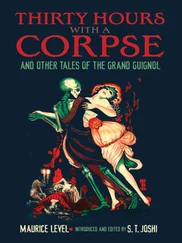Генри Джеймс - Lady Barbarina, The Siege of London, An International Episode, and Other Tales
Здесь есть возможность читать онлайн «Генри Джеймс - Lady Barbarina, The Siege of London, An International Episode, and Other Tales» — ознакомительный отрывок электронной книги совершенно бесплатно, а после прочтения отрывка купить полную версию. В некоторых случаях можно слушать аудио, скачать через торрент в формате fb2 и присутствует краткое содержание. Жанр: foreign_prose, literature_19, foreign_antique, на английском языке. Описание произведения, (предисловие) а так же отзывы посетителей доступны на портале библиотеки ЛибКат.
- Название:Lady Barbarina, The Siege of London, An International Episode, and Other Tales
- Автор:
- Жанр:
- Год:неизвестен
- ISBN:нет данных
- Рейтинг книги:4 / 5. Голосов: 1
-
Избранное:Добавить в избранное
- Отзывы:
-
Ваша оценка:
- 80
- 1
- 2
- 3
- 4
- 5
Lady Barbarina, The Siege of London, An International Episode, and Other Tales: краткое содержание, описание и аннотация
Предлагаем к чтению аннотацию, описание, краткое содержание или предисловие (зависит от того, что написал сам автор книги «Lady Barbarina, The Siege of London, An International Episode, and Other Tales»). Если вы не нашли необходимую информацию о книге — напишите в комментариях, мы постараемся отыскать её.
Lady Barbarina, The Siege of London, An International Episode, and Other Tales — читать онлайн ознакомительный отрывок
Ниже представлен текст книги, разбитый по страницам. Система сохранения места последней прочитанной страницы, позволяет с удобством читать онлайн бесплатно книгу «Lady Barbarina, The Siege of London, An International Episode, and Other Tales», без необходимости каждый раз заново искать на чём Вы остановились. Поставьте закладку, и сможете в любой момент перейти на страницу, на которой закончили чтение.
Интервал:
Закладка:
All of which, however, doubtless wanders a little far from my mild argument—that of my so grateful and above all so well-advised primary acceptance of a determined array of appearances. What I was clearly to be treated to by fate—with the early-taken ply I have already elsewhere glanced at—was (should I have the intelligence to embrace it) some considerable occasion to appreciate the mixture of manners. So, as I say, there would be a decent economy in cultivating the intelligence; through the sincerity of which process I have plucked, I hold, every little flower of a “subject” pressed between the leaves of these volumes. I am tempted indeed to make for my original lucidity the claim of something more than bare prudence—almost that of a happy instinctive foresight. This is what I mean by having been “well-advised.” It was as if I had, vulgarly speaking, received quite at first the “straight tip”—to back the right horse or buy the right shares. The mixture of manners was to become in other words not a less but a very much more appreciable and interesting subject of study. The mixture of manners was in fine to loom large and constantly larger all round; it was to be a matter, plainly, about which the future would have much to say. Nothing appeals to me more, I confess, as a “critic of life” in any sense worthy of the name, than the finer—if indeed thereby the less easily formulated—group of the conquests of civilisation, the multiplied symptoms among educated people, from wherever drawn, of a common intelligence and a social fusion tending to abridge old rigours of separation. This too, I must admit, in spite of the many-coloured sanctity of such rigours in general, which have hitherto made countries smaller but kept the globe larger, and by which immediate strangeness, immediate beauty, immediate curiosity were so much fostered. Half our instincts work for the maintained differences; without them, for instance, what would have been the point of the history of poor Lady Barbarina? I have but to put that question, I must add, to feel it beautifully large; for there looms before me at its touch the vision of a Lady Barbarina reconciled, domesticated, developed, of possibly greater vividness than the quite other vision expressed in these pages. It is a question, however, of the tendency, perceptive as well as reflective too, of the braver imagination—which faculty, in our future, strikes me as likely to be appealed to much less by the fact, by the pity and the misery and the greater or less grotesqueness, of the courageous, or even of the timid, missing their lives beyond certain stiff barriers, than by the picture of their more and more steadily making out their opportunities and their possible communications. Behind all the small comedies and tragedies of the international, in a word, has exquisitely lurked for me the idea of some eventual sublime consensus of the educated; the exquisite conceivabilities of which, intellectual, moral, emotional, sensual, social, political—all, I mean, in the face of felt difficulty and danger—constitute stuff for such “situations” as may easily make many of those of a more familiar type turn pale. There , if one will—in the dauntless fusions to come—is the personal drama of the future.
We are far from it certainly—as I have delayed much too long to remark—in the chronicle of Lady Barb. I have placed this composition (1888) at the top of my list, in the present cluster, despite the earlier date of some of its companions; consistently giving it precedence by reason of its greatest length. The idea at the root of it scarcely brooks indication, so inevitable had it surely become, in all the conditions, that a young Englishwoman in some such predicament should figure as the happy pictorial thought. The whole thing rests, I need scarce point out, on the most primitive logic. The international relation had begun to present itself “socially,” after the liveliest fashion, a quarter of a century ago and earlier, as a relation of intermarrying; but nothing was meanwhile so striking as that these manifestations took always the same turn. The European of “position” married the young American woman, or the young American woman married the European of position—one scarce knew how best to express the regularity of it; but the social field was scanned in vain for a different pairing. No American citizen appeared to offer his hand to the “European” girl, or if he did so offered it in vain. The bridal migrations were eastward without exception—as rigidly as if settled by statute. Custom clearly had acquired the force of law; a fact remarkable, significant, interesting and even amusing. And yet, withal, it seemed scarce to demand explanations. So far as they appeared indeed they were confident on the American side. The representatives of that interest had no call in life to go “outside” for their wives—having obviously close at hand the largest and choicest assortment of such conveniences; as was sufficiently proved by the European “run” on the market. What American run on any foreign market had been noted?—save indeed always on the part of the women! It all redounded to the honour and glory of the young woman grown in American conditions—to cast discredit on whose general peerlessness by attested preference for other types could but strike the domestic aspirant as an act of disloyalty or treachery. It was just the observed rarity of the case therefore that prompted one to put it to the imaginative test. Any case so unlikely to happen—taking it for at all conceivable—could only be worth attention when it should , once in a blue moon, occur. There was nothing meanwhile, in truth, to “go by”; we had seen the American girl “of position” absorbed again and again into the European social system, but we had only seen young foreign candidates for places as cooks and housemaids absorbed into the American. The more one viewed the possible instance, accordingly, the more it appealed to speculative study; so that, failing all valid testimony, one had studiously, as it were, to forge the very documents.
I have only to add that I found mine, once I had produced them, thoroughly convincing: the most one could do, in the conditions, was to make one’s picture appear to hang together, and I should have broken down, no doubt, had my own, after a superficial question or two, not struck me as decently hanging. The essential, at the threshold, I seem to recall, was to get my young man right—I somehow quite took for granted the getting of my young woman. Was this because, for the portrait of Lady Barb, I felt appealed to so little in the name of shades ? Shades would be decidedly neither of her general world nor of her particular consciousness: the image I had in view was a maiden nature that, after a fashion all its own, should show as fine and complete, show as neither coarse nor poor, show above all as a resultant of many causes, quite without them. I felt in short sure of Lady Barb, and I think there is no question about her, or about the depth of root she might strike in American soil, that I shouldn’t have been ready on the spot to answer. Such is the luck of the conception that imposes itself en bloc —or such at least the artist’s luck in face of it; such certainly, to begin with and “subjectively” speaking, is the great advantage of a character all of a piece: immediacy of representation, the best omens for felicity, then so honourably await it. It was Jackson Lemon and his shades, comparatively, and his comparative sense for shades, that, in the tale, most interested me. The one thing fine-drawn in his wife was that she had been able to care for him as he was: to almost every one and every thing else equally American, to almost every one and everything else so sensibly stamped, toned and warranted, she was to find herself quite otherwise affected. With her husband the law was reversed—he had, much rather, imputed authority and dignity, imputed weight and charm, to the antecedents of which she was so fine and so direct a consequence; his estimate, his appreciation of her being founded thus on a vision of innumerable close correspondences. It is that vision in him that is racked, and at so many fine points, when he finds their experiment come so near failure; all of which—at least as I seem to see it again so late in the day—lights his inward drama as with the never-quenched lamp of a sacred place. His wife’s, on the other hand, goes on in comparatively close darkness.
Читать дальшеИнтервал:
Закладка:
Похожие книги на «Lady Barbarina, The Siege of London, An International Episode, and Other Tales»
Представляем Вашему вниманию похожие книги на «Lady Barbarina, The Siege of London, An International Episode, and Other Tales» списком для выбора. Мы отобрали схожую по названию и смыслу литературу в надежде предоставить читателям больше вариантов отыскать новые, интересные, ещё непрочитанные произведения.
Обсуждение, отзывы о книге «Lady Barbarina, The Siege of London, An International Episode, and Other Tales» и просто собственные мнения читателей. Оставьте ваши комментарии, напишите, что Вы думаете о произведении, его смысле или главных героях. Укажите что конкретно понравилось, а что нет, и почему Вы так считаете.












